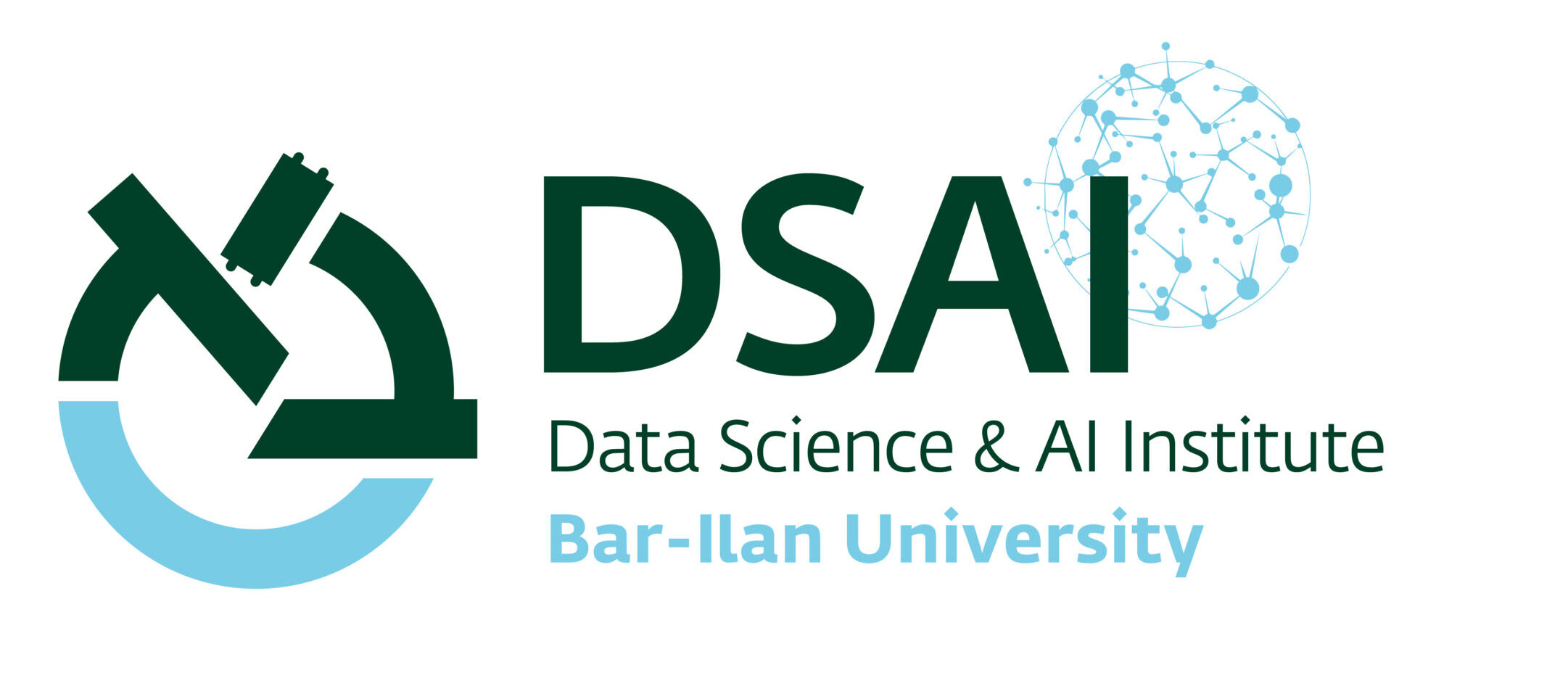
- This event has passed.
BIU AI and ML Learning Club, June 23 – BIU Students research talks
June 23, 2024 @ 12:00 pm - 2:00 pm IDT
On June 23, we will have 4 BIU Students giving the following talks on their research progress.
First hour (12:00-13:00) will be dedicated for the students talks
Second hour (13:00 – 14:00) for networking.
12:00 – 12:15
Presenter: Osnat Drien
Lab Head: Prof. Yael Amsterdamer
Title: Query-Guided Resolution in Uncertain Databases
Abstract: We present a novel framework for uncertain data management. We start with a database whose tuple correctness is uncertain and an oracle that can resolve the uncertainty, i.e., decide if a tuple is correct or not. Such an oracle may correspond, e.g., to a data expert or to a crowdsourcing platform. We wish to use the oracle to clean the database with the goal of ensuring the correct answer for specific mission-critical queries. To avoid the prohibitive cost of cleaning the entire database and to minimize the expected number of calls to the oracle, we must carefully select tuples whose resolution would suffice to resolve the uncertainty in query results. In other words, we need a query-guided process for the resolution of uncertain data. We develop an end-to-end solution to this problem, based on the derivation of query answers and on correctness probabilities for the uncertain data. At a high level, we first track Boolean provenance to identify which input tuples contribute to the derivation of each output tuple, and in what ways. We then design an active learning solution for iteratively choosing tuples to resolve, based on the provenance structure and on an evolving estimation of tuple correctness probabilities. We conduct an extensive experimental study to validate our framework in different use cases.
12:15 – 12:30
Presenter: Kobi Rahimi
Lab Head: Dr. Ofir Lindenbaum and Dr. Tom Tirer
Title: Multiple Descents in Unsupervised Learning: The Role of Noise, Domain Shift and Anomalies
Abstract: The phenomenon of double descent has recently gained attention in supervised learning. It challenges the conventional wisdom of the bias-variance trade-off by showcasing a surprising behavior. As the complexity of the model increases, the test error initially decreases until reaching a certain point where the model starts to overfit the train set, causing the test error to rise. However, deviating from classical theory, the error exhibits another decline when exceeding a certain degree of over-parameterization. We study the presence of double descent in unsupervised learning, an area that has received little attention and is not yet fully understood. We conduct extensive experiments using under-complete auto-encoders (AEs) for various applications, such as dealing with noisy data, domain shifts, and anomalies. We use synthetic and real data and identify model-wise, epoch-wise, and sample-wise double descent for all the aforementioned applications. Finally, we assessed the usability of the AEs for detecting anomalies and mitigating the domain shift between datasets. Our findings indicate that over-parameterized models can improve performance not only in terms of reconstruction, but also in enhancing capabilities for the downstream task.
12:30 – 12:45
Presenter: Asaf Achi Mordechai
Lab Head: Prof. Yoav Goldberg and Dr. Reut Tsarfaty
Title: NoviCode: Generating Programs from Natural Language Utterances by Novices
Abstract: Current Text-to-Code models demonstrate impressive capabilities in generating executable code from natural language snippets. However, current studies focus on technical instructions and programmer-oriented language, and it is an open question whether these models can effectively translate natural language descriptions given by non-technical users and express complex goals, to an executable program that contains an intricate flow — composed of API access and control structures as loops, conditions, and sequences. To unlock the challenge of generating a complete program from a plain non-technical description we present NoviCode, a novel NL Programming task, which takes as input an API and a natural language description by a novice non-programmer, and provides an executable program as output. To assess the efficacy of models on this task, we provide a novel benchmark accompanied by test suites wherein the generated program code is assessed not according to their form, but according to their functional execution. Our experiments show that, first, NoviCode is indeed a challenging task in the code synthesis domain, and that generating complex code from non-technical instructions goes beyond the current Text-to-Code paradigm. Second, we show that a novel approach wherein we align the NL utterances with the compositional hierarchical structure of the code, greatly enhances the performance of LLMs on this task, compared with the end-to-end Text-to-Code counterparts.
12:45 – 13:00
Presenter: Lahav Dabah
Lab Head: Dr. Tom Tirer
Title: On Temperature Scaling and Conformal Prediction of Deep Classifiers
Abstract: In many classification applications, the prediction of a deep neural network (DNN) based classifier needs to be accompanied by some confidence indication. Two pop- ular approaches for that aim are: 1) Calibration: modifies the classifier’s softmax values such that the maximal value better estimates the correctness probability; and 2) Conformal Prediction (CP): produces a prediction set of candidate labels that contains the true label with a user-specified probability, guaranteeing marginal coverage, rather than, e.g., per class coverage. In practice, both types of indications are desirable, yet, so far the interplay between them has not been investigated. We start this paper with an extensive empirical study of the effect of the popular Temperature Scaling (TS) calibration on prominent CP methods and reveal that while it improves the class-conditional coverage of adaptive CP methods, surpris- ingly, it negatively affects their prediction set sizes. Subsequently, we explore the effect of TS beyond its calibration application and offer simple guidelines for practitioners to trade prediction set size and conditional coverage of adaptive CP methods while effectively combining them with calibration. Finally, we present a theoretical analysis of the effect of TS on the prediction set sizes, revealing several mathematical properties of the procedure, according to which we provide reasoning for this unintuitive phenomenon.
